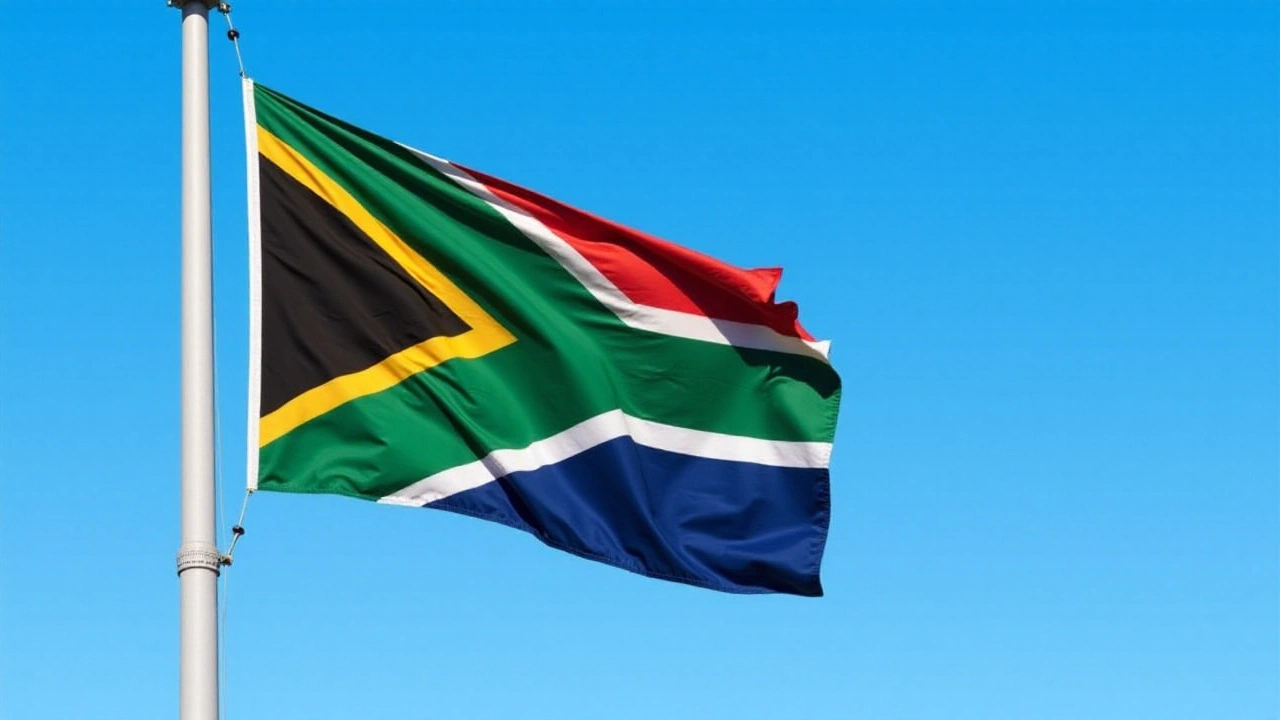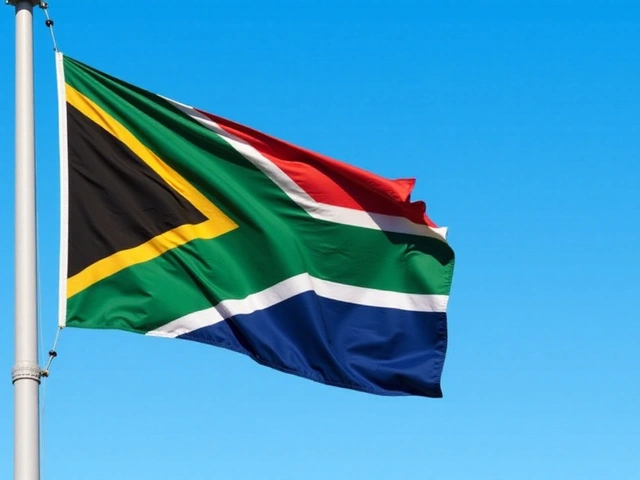Understanding the Day of Reconciliation: A Step Towards Unity
South Africa's Day of Reconciliation is not just another public holiday; it represents a profound initiative to bridge historical divisions within the nation. Celebrated on December 16 each year, the day holds historical importance for its dual significance among South Africa's Afrikaner and African communities. First observed in 1995, shortly after the end of apartheid, the Day of Reconciliation aimed to unite a country rife with social and racial inequalities. It is a tribute to the nation's complex past, a time to remember different histories, yet join together towards a future of mutual respect and understanding.
The origin of this commemoration dates to events significant to varying segments of the population: the Afrikaners and the ANC's military arm. For the Afrikaners, December 16 was initially known as the Day of the Covenant. It marked the Battle of Blood River in 1838, where Voortrekkers claimed a decisive victory over the Zulu kingdom. For the African community, December 16 resonates with the founding of Umkhonto we Sizwe (MK), the militant branch of the African National Congress (ANC), in 1961. By selecting this dual-significance date, the South African government emphasized its effort to weave a cohesive narrative for the nation.
The Historical Context Behind December 16
To truly appreciate the Day of Reconciliation, one must delve into the historical occurrences tied to December 16. The Day of the Covenant reflects a longstanding tradition where Afrikaners remembered their heritage and the triumph of their forebears at Blood River. These commemorations reminded the Afrikaner community of their resilience and identity in a time when they were carving a place in South Africa's early colonial history.
On the other end of the spectrum, the establishment of Umkhonto we Sizwe symbolized a pivotal moment for the African liberation movement. In 1961, against the backdrop of oppressive apartheid policies, the establishment of MK was a declaration of bringing an end to a system that institutionalized racial inequality. This military wing planned an active campaign against the unjust laws and was a symbol of the resolve to achieve freedom and equality.
The Nation's Journey Toward Healing and Unity
As South Africa transitioned out of apartheid with the election of Nelson Mandela in 1994, there was a pressing need to unite and heal. The establishment of the Day of Reconciliation was part of a broader series of initiatives, including the Truth and Reconciliation Commission, aimed towards dealing with past injustices while fostering a climate of forgiveness and understanding. It pointed towards a path of reconstruction and renewal, acknowledging painful histories while setting the tone for racial and cultural inclusivity.
Celebrations on this day are woven with themes of cultural understanding and dialogue. Across South Africa, the Day of Reconciliation is marked by diverse events that reflect the nation's plurality and shared interests in peace and prosperity. Public parades, festivals, and various artistic performances serve to highlight regional traditions and cultures. Through these celebrations, South Africans are invited to reflect on the past but also celebrate the present in harmony and camaraderie.
Modern Day Celebrations and Reflections
In the years that have passed since 1995, the Day of Reconciliation has grown to encapsulate more than just historical reflection. It focuses on addressing ongoing disparities and engaging communities towards conscious dialogue. Important to these celebrations are themes of hope and the spirit of Ubuntu, a Nguni Bantu term encompassing humanity and togetherness.
Today, numerous events, from governmental announcements to community gatherings, stress the need to confront ongoing issues that threaten racial harmony. Several regions host community outreach projects and forums for discussions on subtle and overt forms of intolerance that exist. The day also serves as an occasion for educational institutions to hold special programs that teach younger generations the importance of harmony and collective progress.
Embracing Change for an Inclusive Future
The Day of Reconciliation serves as a powerful reminder and a catalyst for change. In contemporary South Africa, socio-economic challenges persist, but the commitment to equality and reconciliation remains steadfast. Initiatives like these are essential in ensuring that the vision of a unified South Africa is not only remembered but actively pursued. As we move into 2024 and beyond, this day continues to represent hope, dreams of a cohesive society, and the indelible spirit of the South African people in their journey towards a fully reconciled country.
In summary, the Day of Reconciliation highlights the power of remembrance and forgiveness. It showcases how marginalized narratives can be integrated into a harmonious future narrative, one that is inclusive and empowering. By commemorating this day, South Africa acknowledges its deep, sometimes painful history while simultaneously celebrating its commitment to healing, growth, and interconnectedness.





Comments
The narrative reads like a glossy brochure trying to sugar‑coat centuries of bloodshed and oppression. It drags on with endless platitudes about "unity" while sidestepping the gritty reality of land dispossession. You can feel the agenda pushing a feel‑good veneer over a wound that still aches. Honestly, it’s a half‑baked attempt at historical PR and it falls flat.
From a sociocultural lens the commemoration operates as a ritualized integration mechanism. It engenders a shared symbolic capital that can mediate intergroup tension.
Nice try 🙃
Love the energy surrounding this day it really vibes with hope. People are out enjoying music food and colourful parades. Keep spreading those good vibes 😊
The layering of historical signifiers in the Day of Reconciliation is a profound tapestry that weaves together narratives that have long been kept in tension. When we consider the Battle of Blood River, it is not merely a military episode but a mythic cornerstone for Afrikaner identity, a story repeated in schoolbooks and commemorated in public monuments. Parallel to that, the birth of Umkhonto we Sizwe marks a decisive rupture in the anti‑apartheid struggle, a moment when liberation ideology transitioned from passive resistance to armed defiance. The juxtaposition of these two events on a single calendar date invites a dialogic encounter between memory and counter‑memory, prompting citizens to confront the paradoxes embedded in nation‑building. In practice, the holiday functions as a ritualized space where the state can assert a narrative of inclusive nationhood, while civil society can mobilize to critique lingering inequities. It is precisely this tension that fuels the lived experience of reconciliation: a perpetual negotiation between acknowledgment of past atrocities and the aspiration for a shared future. Moreover, the symbolism of Ubuntu embedded in contemporary celebrations amplifies the ethical appeal of collective responsibility, reminding participants that humanity is interdependent. Yet, despite the lofty rhetoric, socioeconomic disparities persist, and the day can sometimes become a performative spectacle rather than a substantive catalyst for change. The Truth and Reconciliation Commission, while historic, left many structural injustices unaddressed, a reality that continues to echo in the margins of South African society. Therefore, the Day of Reconciliation serves as both a reminder and a call to action, urging policymakers, educators, and community leaders to translate symbolic gestures into concrete policies that redress land, education, and employment gaps. In this sense, the holiday is a double‑edged sword: it can inspire hope, but it can also mask the unfinished business of transformation. As we move further into the twenty‑first century, the challenge will be to ensure that the day’s celebrations are not simply decorative but are anchored in tangible progress toward social justice. Only then can the promise of unity evolve from a rhetorical flourish into an lived reality for all South Africans.
While the sentiment is noble, one must also recognize the intellectual rigor required to truly grasp the complexities at play here.
It would be interesting to explore how regional variations in celebration styles reflect local histories and contemporary social dynamics.
Totally agree these events can spark meaningful community dialogues and help bridge divides you guys are doing great
What they don’t tell you is that the state uses this holiday to distract us from the covert land grabs happening behind the scenes. The narratives about peace are just smoke screens for a new wave of economic colonisation. We should be questioning who really benefits from these “unity” festivals.
From an interdisciplinary perspective, the integration of cultural pedagogy into school curricula during this day can enhance intercultural competence among youth.
That’s a solid point – empowering the younger generation with such knowledge can only strengthen our communal bonds.
When I contemplate the arc of South Africa’s history, I’m struck by the paradoxical dance between trauma and triumph that underpins the Day of Reconciliation. The very act of commemorating a day that simultaneously honors a battle of conquest and a birth of armed resistance is a testament to the nation’s capacity for self‑reflection. It forces us to sit with uncomfortable truths, to acknowledge that the foundations of modern South Africa are built upon both oppression and liberation. This duality invites an ethical imperative: to transform remembrance into actionable justice. By engaging with the stories of those who suffered, we honor them not merely as relics of the past but as living catalysts for change. The rituals-parades, music, communal meals-are more than festive displays; they become performative acts of solidarity when they are infused with intentionality. Yet there remains a risk that such performances become hollow spectacles, sidestepping the systemic inequities that persist. The challenge, therefore, lies in harnessing the emotive power of collective memory to fuel concrete policy reforms-land restitution, educational equity, economic redistribution. In doing so, the holiday can evolve from a symbolic gesture into a fulcrum for transformative progress. Ultimately, the reconciliation we seek is not a static endpoint but a dynamic process, a continuous negotiation that demands vigilance, compassion, and unwavering commitment from every citizen.
The article glosses over the deep structural flaws that still plague the nation, offering a sanitized version of reconciliation that feels more like propaganda than genuine analysis.
True, the piece could dive deeper into the socioeconomic gaps that remain, but it still captures the spirit of hope that many citizens cling to during these celebrations.
Great insight here! keep it up, u’re doing amazin work.
Thanks for the kind words! 😊 What are some ways we can keep the conversation going beyond just one day?